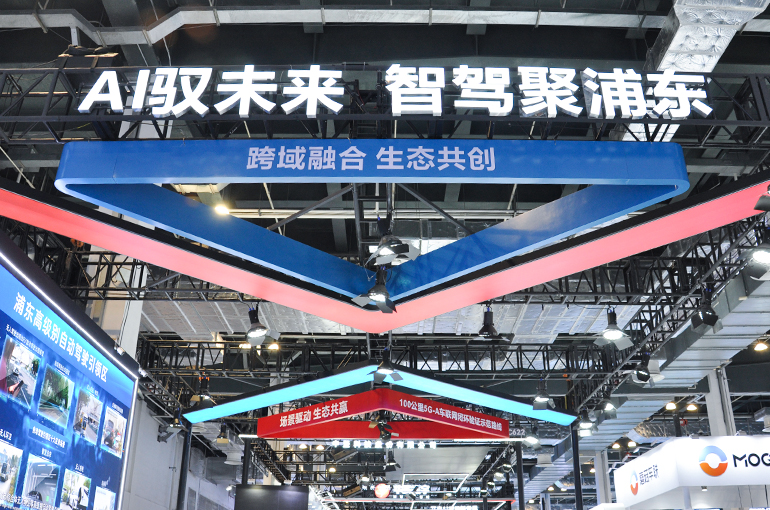 Pudong New Area's AI Sector Accounts for Almost 40% of Shanghai's Total
Pudong New Area's AI Sector Accounts for Almost 40% of Shanghai's Total(Yicai) Aug. 21 -- The size of the rapidly developing artificial intelligence industry in Pudong New Area, a pilot free trade zone in Shanghai, made up nearly 40 percent of the city's total last year, with its growing AI ecosystem continuing to draw more and more companies.
Pudong's AI sector reached about CNY163.7 billion (USD22.8 billion) in 2024, the Shanghai government announced yesterday. An AI industrial ecosystem is forming in the area, with major industrial parks attracting more than 200 upstream and downstream vertical AI model developers and over 70 firms from the embodied intelligence supply chain, it added.
Twenty-eight large language models developed by companies located in Pudong have completed registration, while AgiBot, Fourier, Kepler Robotics, DroidUp, and Keenon Robotics have launched humanoid robots.
Zhangjiang AI Island, known as AIsland, has gathered 85 firms whose businesses cover AI, LLMs, Big Data, smart chips, and cloud computing since its inception in 2019, Guo Kui, deputy general manager of Zhangjiang Group's unit Zhangjiang Digital Intelligent Economic Development, the operator of the industrial park, told Yicai.
Last year, the AIsland lured Kepler Robotics because it hopes that the firm's algorithms, computing power, and software development achievements in robotics will highlight the park's upstream and downstream advantages, Guo noted. The move also aligned with the development goal of making the park China's first demonstration area for '5G plus AI' scenarios, Guo added.
Lianren Digital Health, a science and technology innovation company settled in the AIsland, has trained a medical LLM and over 200 special-purpose models and applied them thanks to China Mobile's computing power support in Pudong, Chairperson Dai Zhong said to Yicai. Its AI rational drug use tool has been deployed in 30 hospitals, reducing prescription error rates by 40 percent, Dai added.
The Model Power Community, located around 1.2 kilometers from AIsland, is also shaping a new pattern of AI-enabled industries, Zhu Hui, GM of its operator Zhangjiang Science Gate Technology Development, told Yicai. The park focuses on embodied intelligence, scientific intelligence, and application, forming a closed-loop scenario that assists AI tech's final application, Zhu said.
The Model Power Community does not evaluate companies' ability through output value and paid taxes, but offers tech development support to help them achieve reasonable and highly efficient innovative development and overcome difficulties and challenges of starting a business, Zhu pointed out.
Since the Model Power Community went live at the end of August last year, the park and surrounding areas in Zhangjiang have attracted nearly 200 companies from the upstream and downstream of the supply chain, forming a unique ecosystem of "entrepreneurs serving entrepreneurs," Zhu noted.
Unlike other AI incubators and industry parks, the Model Power Community focuses more on vertical AI models and their practical application, Zhu said. After completing research and development, firms can implement their technologies in Pudong, which boasts abundant industry scenarios, Zhu pointed out.
Editors: Tang Shihua, Martin Kadiev